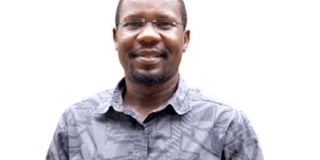To torture is to abuse power, is to reveal your inhumanity

Bernard Tabaire
What you need to know:
- It is rather late in the day for Mr Museveni to be expressing concern at the use of torture by his security services to extract confession from suspects.
- He has allowed a permissive culture to take hold. And people who wield guns seem to think they can make stones speak.
One of the things that fascinate me is how people in positions of authority, especially state authority, use the power they have.
Some use it for the common good. Others use it to steal public money; to lean hard on subordinates to do their bidding; to favour family and friends. And yet others use their positions to break bones of suspects.
Torture is the word.
We have been on a slide for a while — safe houses, teargasing of the Opposition, slapping around of journalists. Now anything goes.
President Yoweri Museveni used to talk about State-inspired violence. There was a time in Uganda when gun-wielding men killed, pillaged and raped as they pleased. These were security personnel in the employ of successive governments. Their terrible behaviour is one of the reasons Mr Museveni gave to launch a civil war in the Luweero bushes in 1981 and to justify his (eternal) stay in power after emerging victorious five years later.
Some national habits, like personal ones, die hard indeed. If you will, we have never let go of modern Uganda’s “founding violence” of the mid-1880s. Richly, that was the period of the religious wars centred around Buganda. That violence has begat violence to-date.
President Museveni’s protestations to the contrary, the State he has presided over for three decades has not acquitted itself very well. Whereas the soldiers and other armed State agents are no longer looting at will, horror stories have come out of areas where there has been armed conflict under Mr Museveni’s government. Northern Uganda’s full tale is yet to be reported.
Outside of conflict, those actively opposed to President Museveni’s rule have ended up in safe houses (can’t beat that euphemism) and some have emerged with broken bones and souls. Some police cells, which are gazetted detention centres, have not done well either. Uganda Human Rights Commission and other rights groups have documented these things over the years.
It is rather late in the day for Mr Museveni to be expressing concern at the use of torture by his security services to extract confession from suspects. He has allowed a permissive culture to take hold.
And people who wield guns seem to think they can make stones speak. After all, they are working to protect the State and the government and the President and so the commander-in-chief should be happy with any and all their ways.
But then they blunder their way through it all, drunk on power coupled with sheer incompetence. Nothing new here. Again. In 1968, using the cover of the Emergency Powers Act, Obote decided to arrest a few critics — the politician Abu Mayanja and the Transition magazine editor Rajat Neogy.
Picking up Mayanja, a serving MP, and tying him up kandoya-style was straightforward. Not so with Neogy. When the order went that the editor should be brought in as well, the heavily armed security agents went for Daniel Nelson, the British journalist who had been editing the ruling UPC party mouthpiece, The People, for three years.
They beat up Mr Nelson. Then freed him after five hours. Reason? Mistaken identity. The wanted editor was Rajat Neogy. One commentator characterised the whole thing as having “underlined both the inefficiency and the brutality” of State security agents. Was anyone punished for this mistaken identity nonsense? Nope.
The current uproar about torture, occasioned by the plight of the Kamwenge mayor, is an opportunity to seize. Virtually nothing will change unless there is an overhaul of how the security services — the police and other military and quasi-military intelligence agencies — do their work.
There have to be new systems and practices that ultimately change the culture. Change in personnel matters too. Aggressive oversight from within and without the security world is crucial. If President Museveni won’t make it happen, Parliament has to stand and force it. Look, failure to set sensible standards in crowd control, for example, suggests worse happens behind closed doors.
This government is accountable to Ugandans only in theory; meaning not much is likely to happen. That is where wananchi will have to step in. We have allowed men and women with authority too much latitude. They have abused our goodwill. Every time we keep quiet, we give them a pass, we embolden them to do worse.
Mr Tabaire is the co-founder and director of programmes at African Centre for Media Excellence in Kampala.
[email protected]
Twitter:@btabaire




